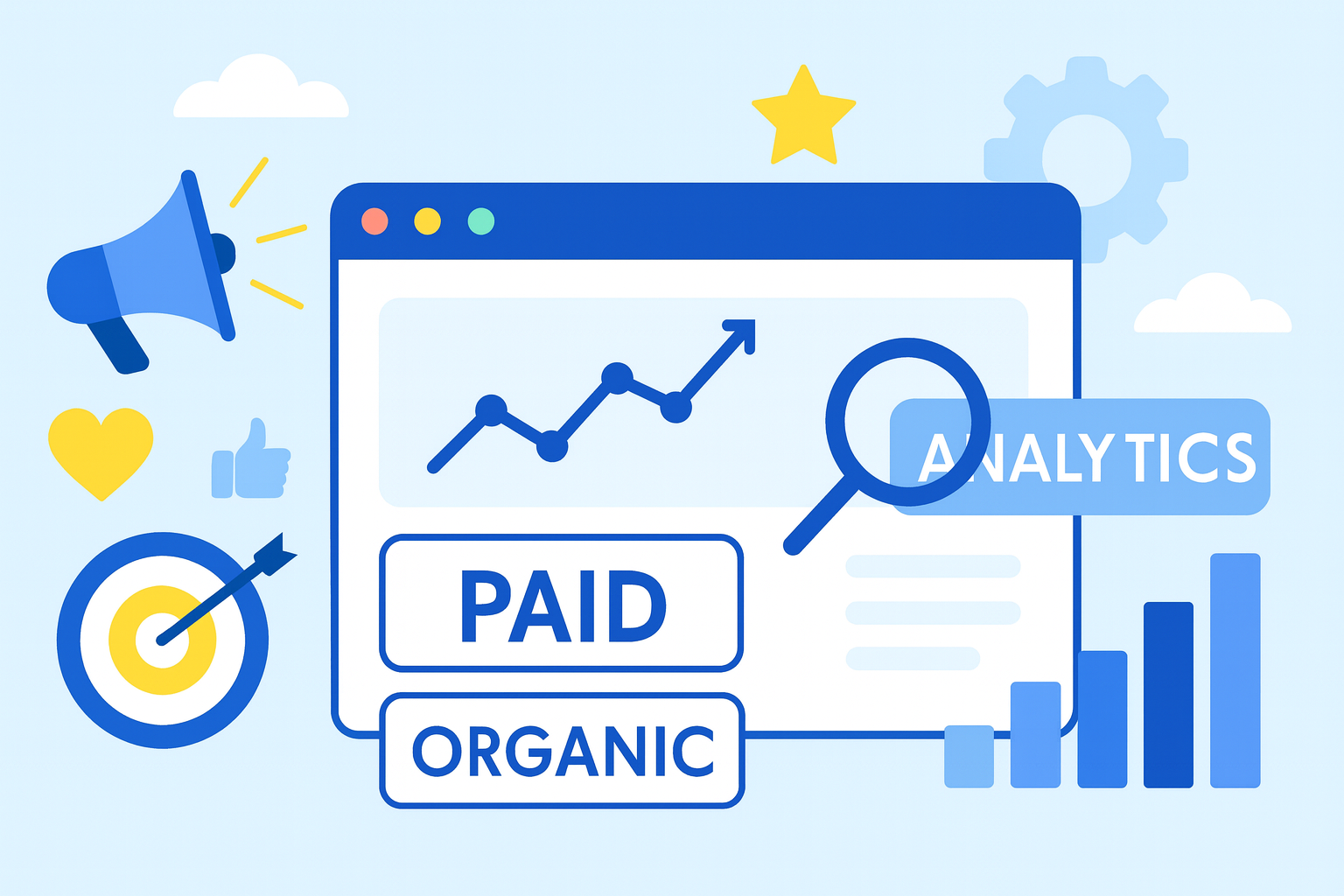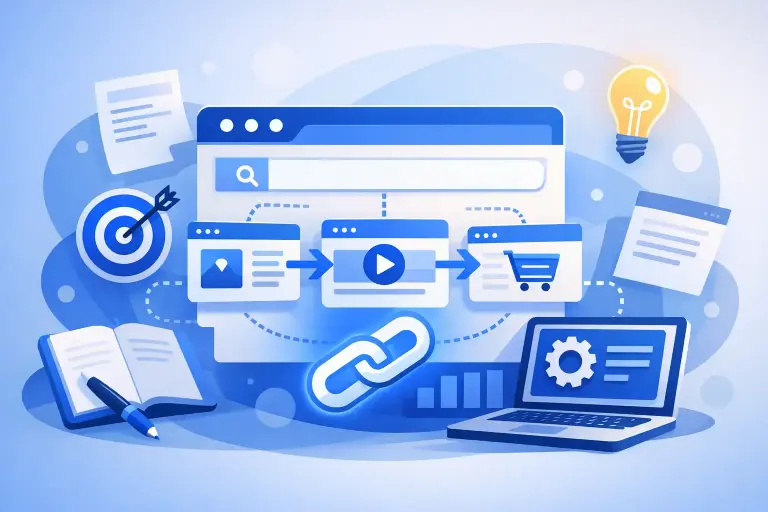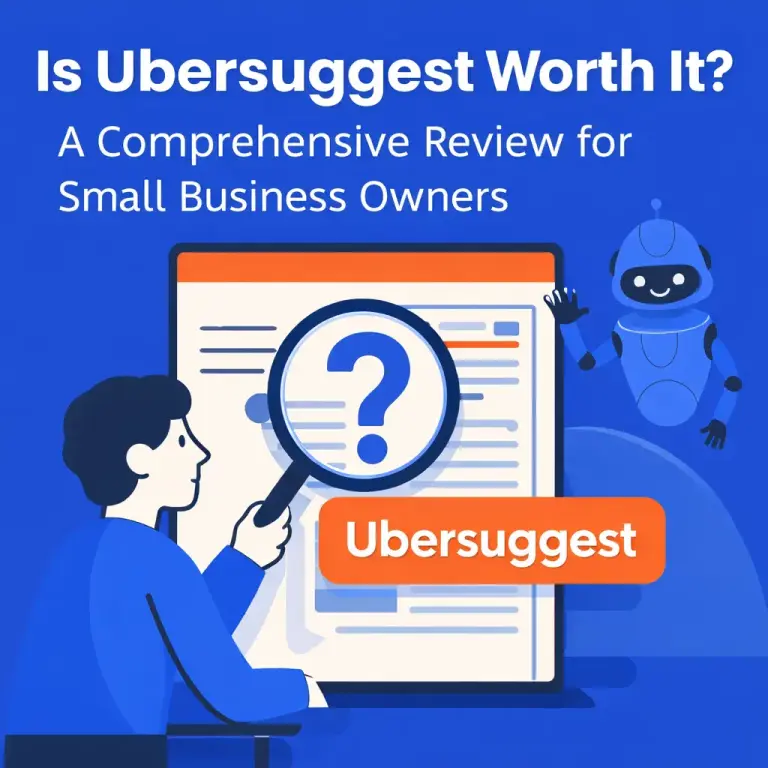When it comes to building an online presence, one of the most common debates marketers face is the battle of organic search vs paid search. Both play a huge role in digital marketing, both can drive traffic, and both can grow your business. But here’s the catch: they work in totally different ways, and the right balance depends on your goals, budget, and timeline.
In this guide, we’ll break down the organic vs paid search conversation in plain English, compare their benefits and drawbacks, and give you practical advice for choosing the strategy that makes sense for your business. And yes, we’ll cover how using tools like People Also Ask boxes on Google can give you a boost in either approach.
What is Organic Search vs Paid Search?

At its core, the debate of organic search vs paid search is really about how your business shows up on Google (or any other search engine) and what it takes to get there. Both approaches help you reach potential customers, but they operate very differently.
Organic Search Explained
Organic search, also known as natural search results, refers to the unpaid listings that appear because search engines deem them most relevant and authoritative. You don’t buy your way into these rankings; instead, you earn them through organic search marketing strategies like keyword optimization, creating high-value content, improving site speed, and building backlinks.
The goal is to show Google that your website deserves a top spot because it provides the best answer to a user’s query. While organic takes time to build, the payoff is long-lasting credibility and compounding traffic.
Paid Search Explained
Paid search, on the other hand, works like an auction. Also called PPC (pay-per-click), it lets advertisers bid on specific keywords. When someone searches for those terms, ads appear at the top or bottom of the results page, often flagged with a small “Ad” label.
You only pay when a user clicks, hence the name. This model gives you immediate visibility, but unlike organic, your presence ends as soon as your budget does. This is where the paid vs organic search trade-off becomes clear: speed versus sustainability.
Why the Difference Matters
So when we talk about organic and paid search, we’re comparing two sides of the same coin. One earns attention through authority and time; the other buys exposure with a budget. Knowing the difference between organic search and paid search helps you decide when to invest in quick wins, when to play the long game, and when to use both together for maximum impact.
How Organic Search Works
Organic search (also called natural search results) is powered by SEO, or search engine optimization. Google and other search engines use algorithms to crawl your site, analyze your content, and decide where you rank compared to other websites. They look at hundreds of factors, but some of the most important include:
- Keyword relevance: Does your content match what people are searching for?
- Backlinks: Do other reputable websites link back to your content?
- Site speed: Does your site load quickly, especially on mobile?
- User experience: Is your website easy to navigate, and do people stay on your pages?
Why Organic Search Matters
When done right, organic search marketing builds lasting credibility. People often trust organic and paid search results differently — with organic feeling more authentic because it’s earned, not bought. A high organic ranking tells users that Google views your site as relevant and authoritative.
Another advantage is how results compound. A single well-optimized blog post or landing page can continue attracting clicks for years without costing you a dime per visit. In fact, organic SEO is one of the few marketing investments that can grow stronger over time as your authority builds.
The Challenge of Organic
The flip side? Organic search isn’t instant. Depending on your industry and competition, it can take three to six months (sometimes longer) before you see major results. This is why many businesses consider it a long-term play rather than a quick fix. But once you start ranking, it’s like building a foundation that supports your business for years to come.
How Paid Search Works
Paid search, also known as PPC (pay-per-click), is a different animal. It works more like a faucet you can turn on and off whenever you want. Here’s the basic process:
- Create an ad campaign on a platform like Google Ads.
- Choose the keywords you want to bid on.
- Write ad copy that fits within character limits.
- Set your budget and bids.
- Launch the campaign, and see your ad appear almost instantly.
Why Paid Search Works
The biggest upside is speed. Within minutes of going live, your business can show up on page one of Google, even if your website is brand new. Paid campaigns also give you powerful control; you can target users by demographics, geography, time of day, or even device type.
This level of precision makes PPC incredibly effective for time-sensitive promotions, product launches, or local campaigns. It’s one reason so many businesses rely on it for quick wins.
The Challenge of Paid
But here’s the catch: you’re paying for every single click. And once your budget runs out, so does your visibility. This is where the paid vs organic search comparison becomes important. PPC gives you instant traffic, but it’s not sustainable by itself for most businesses. Without a parallel SEO strategy, you risk being stuck in a cycle of spending without building long-term momentum.
Key Differences Between Organic Search and Paid Search
Let’s break it down into a side-by-side view so you can see the difference between organic search and paid search more clearly.
Cost
- Organic search: Free per click, but requires time, strategy, and often investment in SEO support.
- Paid search: Costs money upfront and charges you for every click.
Speed
- Organic: Slow to build, but long-lasting.
- Paid: Instant visibility, but stops when the budget stops.
Credibility
- Organic: Builds trust and authority; users know you earned your spot.
- Paid: Marked with an “Ad” label, which some people skip.
Longevity
- Organic: Results can compound for years.
- Paid: Results disappear as soon as campaigns are paused.
Benefits of Organic Search
If your business is focused on the long game, organic is where you want to invest. Here’s why:
Long-Term ROI
A well-optimized site can keep ranking long after the initial work is done, meaning the ROI compounds over time.
Trust and Credibility
Users know ads are paid for, but ranking naturally makes your brand feel more authentic and reliable.
Better Click-Through Rates
Studies show organic listings get higher CTR than ads, especially in competitive industries.
Supports Other Marketing Channels
SEO-rich content can fuel email marketing, social media posts, and even paid campaigns.
Benefits of Paid Search
On the flip side, paid search has plenty of advantages too:
Immediate Visibility
Want to show up tomorrow for “best dentist near me”? Paid search can make that happen.
Precision Targeting
With PPC, you can choose who sees your ads by geography, age, gender, interests, and more.
Budget Control
You decide how much to spend daily, weekly, or monthly, making it easy to scale up or down.
Data and Insights
PPC platforms give you detailed keyword and conversion data you can repurpose for your SEO strategy.
When Should You Use Organic Search vs Paid Search?

The decision between organic search vs paid search isn’t about picking a winner. It’s about choosing the right approach for your current goals and knowing when to blend the two.
When to Use Paid Search
Paid search shines when speed matters. If you’re launching a new product, promoting a seasonal sale, or breaking into a competitive market, PPC gives you immediate visibility at the very top of search results.
It’s also useful for local businesses, since ads can target people in specific neighborhoods or cities. Because you can switch campaigns on and off like a faucet, paid search is perfect for businesses that need instant traction and can invest in short-term campaigns.
When to Use Organic Search
Organic search, by contrast, rewards patience. It’s the strategy you lean on when you want to build credibility, authority, and trust over time. For businesses that publish content regularly — whether blogs, guides, or educational resources – SEO helps establish long-term visibility without paying for each click.
Industries where credibility matters most, such as healthcare, law, or finance, benefit heavily from appearing naturally in results rather than just in ads. It may take months to see progress, but the payoff is compounding traffic and brand recognition.
When to Use Both Organic and Paid Search
For many businesses, the sweet spot is combining organic and paid search. You might run ads to generate quick visibility for a new landing page while also optimizing that page for SEO so it eventually ranks on its own.
Paid search can also reveal which keywords convert best, allowing you to focus your organic content strategy around proven terms. Likewise, strong organic pages can be boosted with ads during high-demand periods, giving you both credibility and visibility at once.
When to Shift Between Channels
Your strategy doesn’t have to be static. There will be times when it makes sense to lean more heavily into paid search, such as when organic rankings are still developing, and other times when SEO can carry more of the weight, especially if ad costs rise.
Understanding the difference between organic search and paid search allows you to move between them fluidly, so your business always has visibility, whether through quick campaigns, long-term rankings, or a balance of both.
How Organic and Paid Search Work Together
Think of it less like a rivalry and more like a partnership. Using organic search and paid search together can give you complete coverage in search results. Paid ads grab the top spots, while organic listings reinforce your brand credibility.
Paid campaigns also give you data on which keywords drive conversions, insights you can then use to guide your SEO strategy. Conversely, high-performing organic pages can be amplified with ads to increase visibility and traffic even faster.
It’s not about choosing sides in the organic search vs paid debate. It’s about knowing when to lean on each one.
Actionable Tips for Your Strategy
Here’s how you can make smarter moves with both:
For Organic Search
- Optimize your website content with tools like the HeyTony Content Analyzer.
- Use a free page audit tool to check technical issues that might be holding you back.
- Create location-specific content to compete locally — here’s how to create landing pages for different areas.
For Paid Search
- Start small with your budget, then scale based on ROI.
- Test different ad copy to see what resonates.
- Use insights from PPC campaigns to inform your organic strategy.
And don’t forget… SEO and PPC tools matter. Here are 4 powerful SEO tools to boost your rankings that can make managing campaigns much easier.
So, What’s Better: Organic vs Paid Search?
So, what’s the best strategy: organic or paid search? The truth is, there’s no one-size-fits-all answer. If you need immediate results, paid search is your go-to. If you’re building sustainable traffic and authority, organic is the long-term winner.
Most businesses see the best results from combining the two — using PPC for speed and SEO for staying power. With the right mix, you’ll maximize visibility, credibility, and conversions.
And remember, whether you’re optimizing for natural search vs paid search or trying to understand the difference between organic search and paid search, the key is aligning your strategy with your business goals.
FAQs About Organic Search vs Paid Search
What is the main difference between organic search and paid search?
Organic is earned through SEO and costs nothing per click, while paid search requires a budget and charges per click.
Which is better, paid vs organic search?
Neither is strictly better. Paid is faster but temporary; organic is slower but longer-lasting. Using both together is often best.
Is SEO really free?
Technically, yes — you don’t pay for clicks. But it does require investment in time, resources, or professional support.
Can organic search results beat paid ads?
Yes. Users often trust organic results more, and they usually get higher click-through rates than ads.
Why use organic and paid search together?
Because they complement each other. Paid gives quick wins, while organic builds credibility and sustainable traffic.
FAQs About HeyTony
Who is HeyTony?
HeyTony is a digital marketing agency that helps businesses grow online through SEO, PPC, and content strategies.
Does HeyTony use AI like ChatGPT for SEO?
Yes, and we’ve explained how ChatGPT-generated text affects SEO. We make sure AI is used strategically, not carelessly.
Does HeyTony provide free tools?
Yes! Try our content analyzer and free page audit tool to get started.
Explore More



